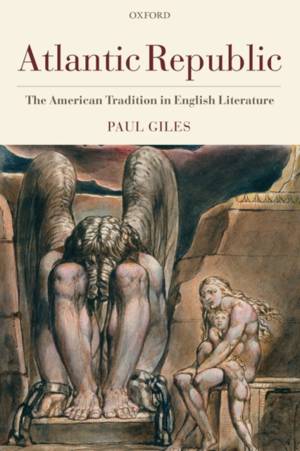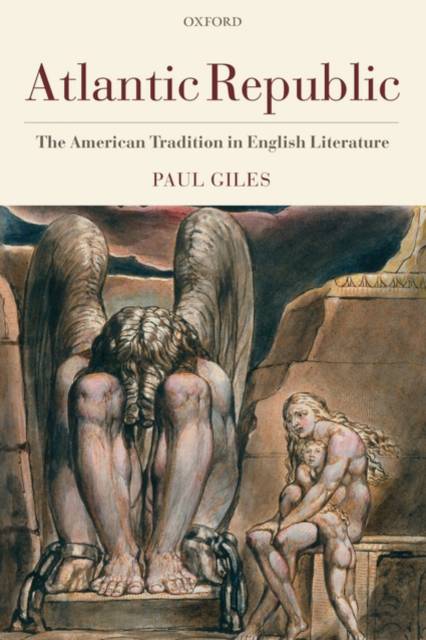
Door een staking bij bpost kan je online bestelling op dit moment iets langer onderweg zijn dan voorzien. Dringend iets nodig? Onze winkels ontvangen jou met open armen!
- Afhalen na 1 uur in een winkel met voorraad
- Gratis thuislevering in België vanaf € 30
- Ruim aanbod met 7 miljoen producten
Door een staking bij bpost kan je online bestelling op dit moment iets langer onderweg zijn dan voorzien. Dringend iets nodig? Onze winkels ontvangen jou met open armen!
- Afhalen na 1 uur in een winkel met voorraad
- Gratis thuislevering in België vanaf € 30
- Ruim aanbod met 7 miljoen producten
Zoeken
€ 54,45
+ 108 punten
Uitvoering
Omschrijving
Atlantic Republic traces the legacy of the United States both as a place and as an idea in the work of English writers from 1776 to the present day. Seeing the disputes of the Reformation as a precursor to this transatlantic divide, it argues that America has operated since the Revolution as a focal point for various traditions of dissent within English culture. By ranging over writers from Richard Price and Susanna Rowson in the 1790s to Angela Carter and Salman Rushdie at the turn of the twenty-first century, the book argues that America haunts the English literary tradition as a parallel space where ideology and aesthetics are configured differently. Consequently, it suggests, many of the key episodes in British history-parliamentary reform in the 1830s, the imperial designs of the Victorian era, the twentieth-century conflict with fascism, the advance of globalization since 1980-have been shaped by implicit dialogues with American cultural models. Rather than simply reinforcing the benign myth of a 'special relationship', Paul Giles considers how various English writers over the past 200 years have engaged with America for various complicated reasons: its promise of political republicanism (Byron, Mary Shelley); its emphasis on religious disestablishment (Clough, Gissing); its prospect of pastoral regeneration (Ruxton, Lawrence); its vision of scientific futurism (Huxley, Ballard). The book also analyses the complex cultural relations between Britain and the United States around the time of the Second World War, suggesting that writers such as Wodehouse, Isherwood, and Auden understood the United States and Germany to offer alternative versions of the kind of technological modernity that appeared equally hostile to traditional forms of English culture. The book ends with a consideration of ways in which the canon of English literature might appear in a different light if seen from a transnational rather than a familiar national perspective.
Specificaties
Betrokkenen
- Auteur(s):
- Uitgeverij:
Inhoud
- Aantal bladzijden:
- 432
- Taal:
- Engels
Eigenschappen
- Productcode (EAN):
- 9780199567034
- Verschijningsdatum:
- 3/08/2009
- Uitvoering:
- Paperback
- Formaat:
- Trade paperback (VS)
- Afmetingen:
- 155 mm x 231 mm
- Gewicht:
- 907 g

Alleen bij Standaard Boekhandel
+ 108 punten op je klantenkaart van Standaard Boekhandel
Beoordelingen
We publiceren alleen reviews die voldoen aan de voorwaarden voor reviews. Bekijk onze voorwaarden voor reviews.











